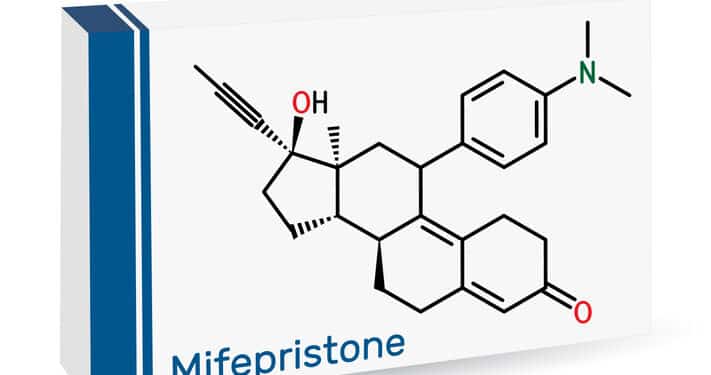The Department of Justice announced on April 12th that Danco Laboratories, LLC reached a settlement to resolve alleged violations of the False Claims Act. According to the government, from a period of 2011 through 2019 “Danco failed to mark imported pharmaceutical products with the appropriate country of origin, and thereafter violated the False Claims Act by knowingly avoiding the marking duties owed to the United States for those imports.” Danco distributes a single pharmaceutical product, the abortifacient pill Mifeprex (a brand name of mifepristone).
The pharmaceutical distributing company based in New York City agreed to pay the U.S. Government $765,000. Companies that import foreign products are required by the Tariff Act of 1930 to mark the origin of the products.
Principal Deputy Assistant Attorney General Brian M. Boynton, head of the Justice Department’s Civil Division said that “this settlement demonstrates the department’s commitment to ensure that importers properly pay all amounts due under our customs laws.”
The claims against Danco originated from a whistleblower, the Life Legal Defense Foundation. The legal non-profit, which describes itself as a “pro-life, pro bono law firm,” filed through the qui tam provisions of the False Claims Act.
Qui tam claims enable private citizens to file lawsuits on behalf of the government if they know of an individual or company defrauding the government. Qui tam whistleblowers are eligible to receive between 15 and 30% of the government’s recovery. In this case, as the whistleblowers, Life Legal Defense Foundation will receive $115,000. According to the settlement agreement, they did not allege that any of Danco’s pharmaceutical products were defective, unsafe, ineffective, or otherwise violated FDA regulations.
U.S. Attorney Brit Featherston said of the settlement “our office is committed to ensuring that importers are transparent with consumers and comply with customs laws and the False Claims Act.” Featherston added they “will continue to pursue aggressively those who seek to avoid their duties and obligations under the law.”
Director Frank Russo of the U.S. Customs and Border Protection (CPB) New York Field Office spoke to the importance of following customs law: “The United States has required imported goods to be marked with their country of origin for generations, so American consumers can use that information in their purchasing decisions.”




